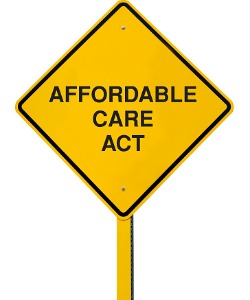Healthcare Reform
Healthcare Reform Information
 What does health care reform encompass?
What does health care reform encompass?
The Patient Protection and Affordable Care Act (PPACA), signed into law in 2010, is predominantly focused on lowering the number of uninsured Americans and reducing the cost of health care in the United States.
How will health care reform affect you?
- Health care will be available and affordable for individuals with pre-existing conditions. Starting in 2014, cancellations and non-renewals based on chronic illness are illegal. This includes both adults and children.
- Preventative services, such as diabetes and blood pressure screenings, will be available at no cost.
- Children can remain on their parents’ plan until age 26.
- Small businesses will receive a tax credit to offset the burden of offering health care in comparison to larger companies that can afford employee benefits.
- An 80/20 rule will force insurance providers to spend at least 80 percent of premium dollars on medical treatment, rather than advertising and executive bonuses. If they do not meet this requirement, they must offer a rebate to customers.
- Lifetime and annual dollar limits on essential medical treatments will be phased out by 2014, which means that consumers will no longer be denied coverage once their medical expenses reach a certain dollar amount.
- The gap, or donut hole, in Medicare’s Part D prescription drug program will close in 2020, making drugs more affordable. Until then, seniors will receive savings on both brand-name and generic drugs.
Get started today!
Our agency can help you select a health care policy to both cover your needs and meet government requirements. Times of drastic change can be confusing. We are here to answer your questions and guide you to a viable solution. Call us to today to get started!

